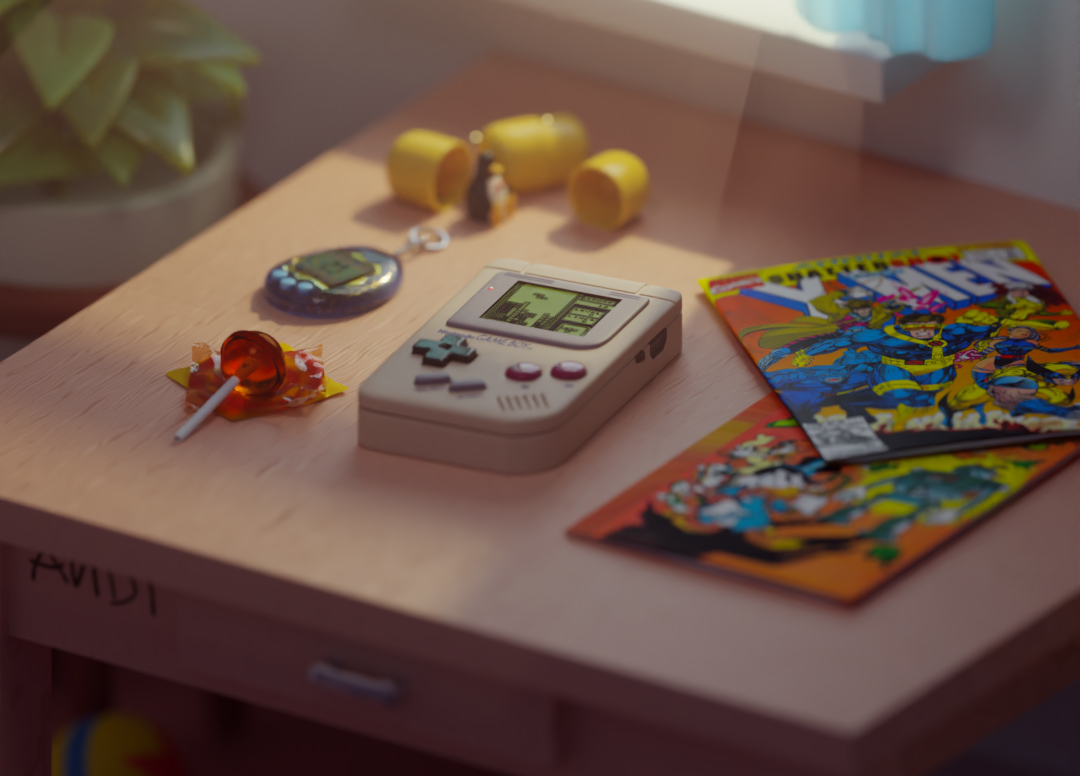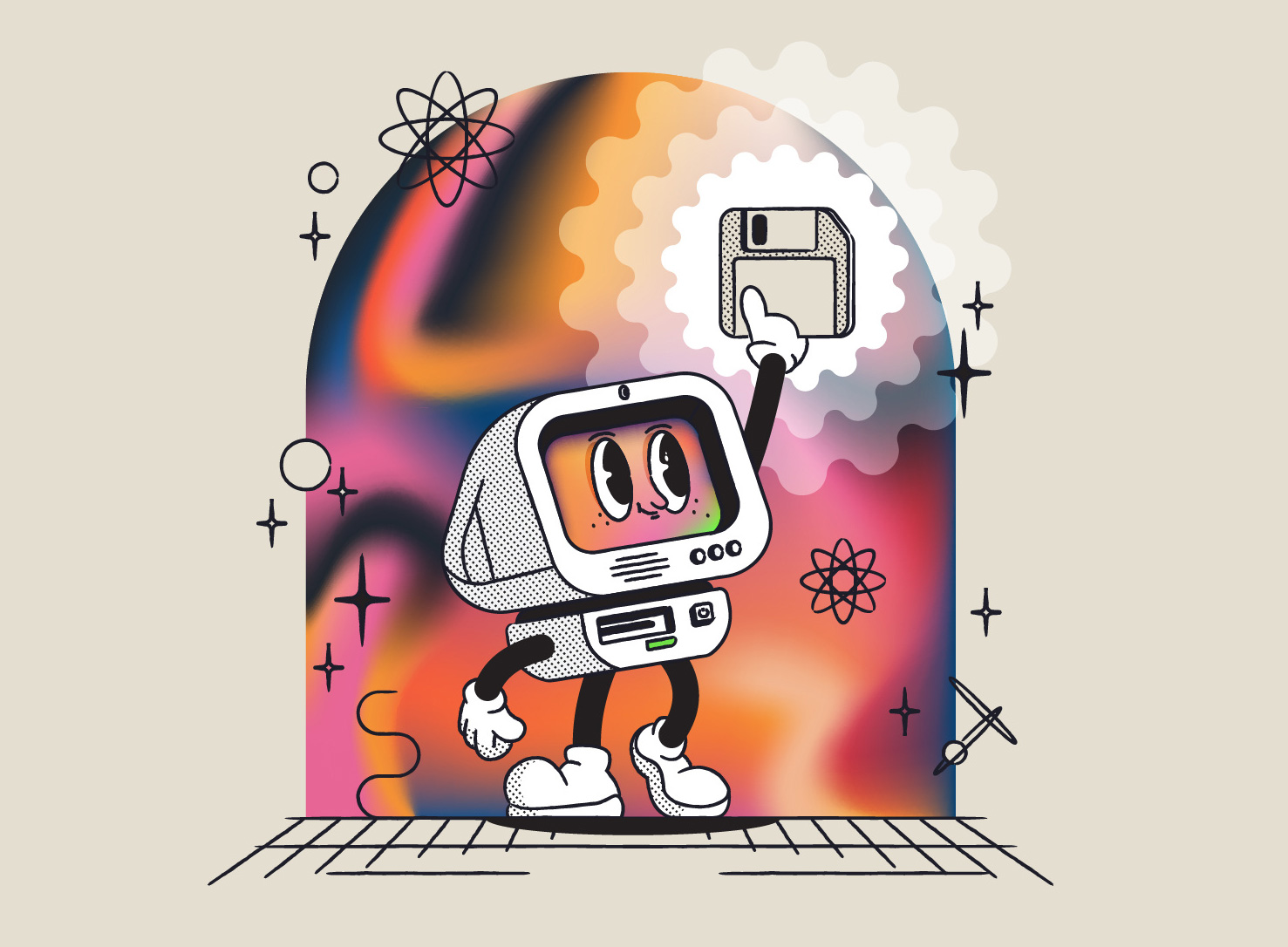Video games have evolved tremendously since their debut in the 1970s. From rudimentary, pixelated visuals to immersive virtual reality experiences, the journey of video games, online slots, gambling games, and others has been extraordinary. Over the decades, various gaming trends have emerged and faded, yet the enduring appeal of retro games has remained unchanged.
As technology progressed, video games became more complex and sophisticated, bringing gaming into millions of homes worldwide. Despite the advances in graphics and gameplay mechanics, retro games still hold a unique and cherished spot in the hearts of gamers.

illustration of Gameboy created by Mohamed Chahin
Retro Gaming Nostalgia and Player Engagement
Retro games remain popular today due to the strong emotional connections they evoke. Many players grew up with these games, creating fond memories of overcoming tough levels or competing with friends for high scores. Beyond nostalgia, retro games offer a simplicity and accessibility often missing in modern titles. With straightforward gameplay and intuitive controls, anyone can jump in and start playing without lengthy tutorials or complex button combinations.
Retro games provide instant gratification and a unique sense of nostalgia. Additionally, retro games feature iconic characters and franchises that have become staples of popular culture. From the Mario Brothers and Sonic the Hedgehog to Zelda and Mega Man, these well-known characters have inspired numerous sequels and spin-offs. The enduring appeal of these classic figures is a significant reason for the lasting popularity of retro games.
Exploring the Retro Look
Visual aesthetics have played an important role in the gaming industry. Retro games have profoundly influenced modern contemporary game design, with many mechanics, elements, and features from classic titles still prevalent today. Pixel art and 8-bit graphics, hallmark visual styles from the early video game era, have made a strong comeback in contemporary game development. There are even retro-themed gambling games designed to evoke nostalgia in players, including those features on BetMGM online slots. This artistic choice transcends simple nostalgia, significantly influencing the visual aesthetics and emotional experiences of today's games.
Pixel art offers limited color palettes and blocky graphics, which is a unique visual charm that developers particularly favor. Retro games are celebrated for their distinct aesthetics and art design. The use of pixel art and restricted color palettes was originally due to technological constraints. However, these limitations fostered a unique visual style that has now endured and is featured in the modern games of today.

illustration of 3D Retro Gaming created by Mattey
Retro Themes Across Genres
There are multiple retro themes for different game genres within the gaming industry. This includes:
- Action Games
- Adventure Games
- Role-playing Games (RPGs)
- Strategy Games
- Puzzle Games
- Stimulation Games
- Fighting Games
- Massively Multiplayer Online Games (MMO)
- Platforms Games
- Racing Games
- Online Slots Games
- Sandbox Games
- First Person Shooter Games (FPS)
Advancing the Retro Genre With Modern Technology
Technological advancements have allowed modern retro game designs to capture the nostalgic essence of classic games while providing a richer, more engaging experience. The blend of old and new creates a unique appeal, drawing in both experienced gamers and newcomers to the world of retro-inspired gaming.
- Enhanced graphics and visual effects
- Audio improvements
- Storytelling and narratives
- Accessibility features
- Modern development tools
- Better gameplay mechanics
- Online features and community integration

illustration created by Razvan Vezeteu
Challenges and Difficulties in Modern Games
The game design challenge originates in the retro gaming era, which still influences modern video games. Today’s titles often incorporate classic gameplay elements, creating engaging experiences reminiscent of the past. This appeals to gamers by offering a test of skill and determination.
For many enthusiasts, playing retro games provides an exhilarating challenge. Their formidable difficulty levels and old-school mechanics stand out in an age where ease of play is often prioritized. Strategy-based video games, role-playing adventures, and complex board games exemplify this ethos. These games showcase intricate designs and complex systems that demand dedication and skill for mastery, resulting in heightened feelings of triumph and satisfaction, keeping players immersed in strategic gameplay.
The Evolution of Retro Design in Gaming
The evolution of retro design in gaming is a fascinating journey that showcases how the past continually influences the present. Retro games, with their pixel art and 8-bit graphics, laid the foundation for visual styles that continue to captivate both developers and players alike. As technology advanced, gaming visuals evolved towards more realistic and complex graphics. However, the charm and simplicity of retro aesthetics never faded.
The straightforward, challenging gameplay of classics has inspired a wave of modern games that prioritize skill and strategy over flashy graphics. Additionally, the storytelling in early games often conveyed through minimalistic design and text, paved the way for innovative narrative techniques seen in today’s indie titles.
The evolution of retro design is a testament to the enduring appeal of the early gaming era. By blending old-school aesthetics with contemporary gameplay and storytelling, developers continue to create engaging, memorable experiences that honor the past while pushing the boundaries of what games can be.

retro illustration created by Pine Watt
The Enduring Legacy Of Retro Games
Looking back at the enduring influence of retro gaming on modern game design, it is clear that the foundational principles and mechanics of early games still inspire today's developers. By leveraging the rich history of gaming, designers craft experiences that connect with players, tapping into a shared love for the timeless charm of retro games. As technology advances and gaming evolves, the legacy of retro gaming will undoubtedly continue to shape the landscape of interactive entertainment, ensuring its lasting impact for generations to come.
















